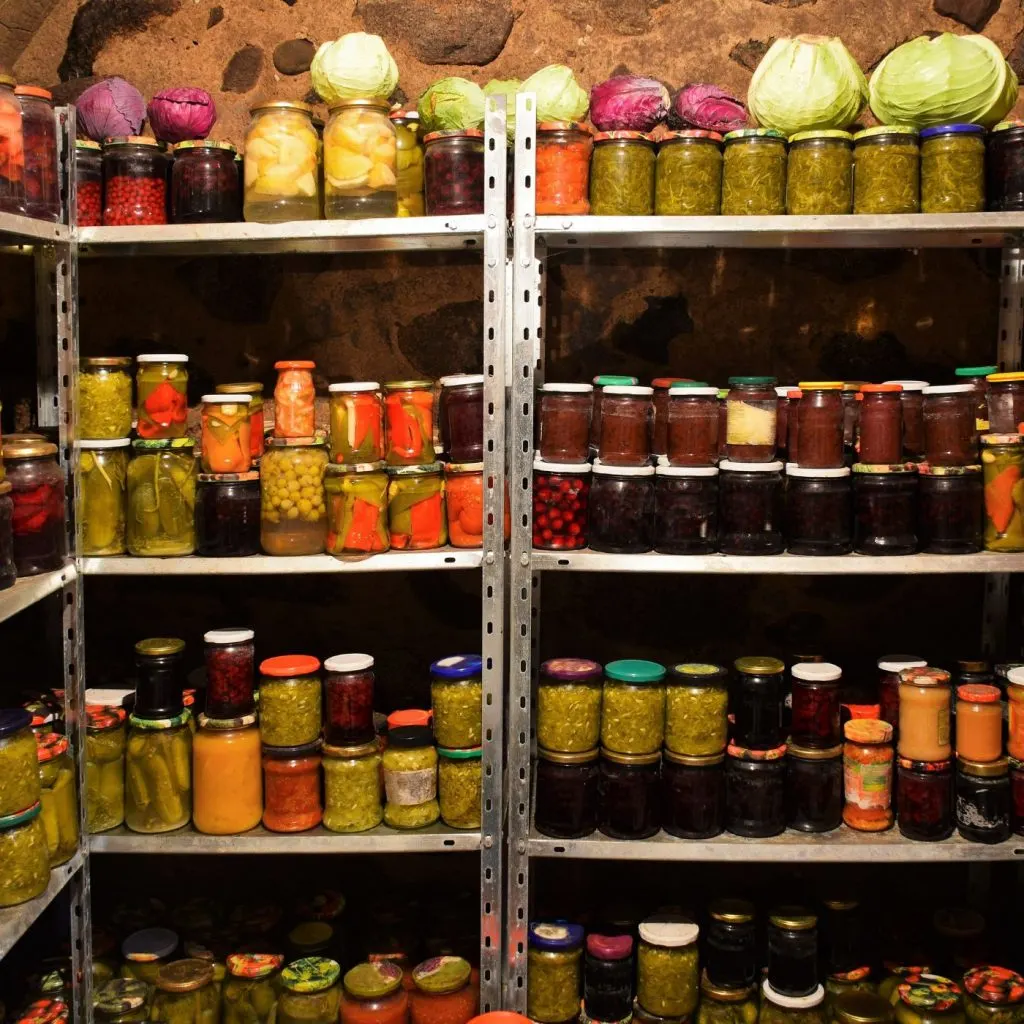Moms are having to get creative in order to make sure their families are fed, and many of them are turning to processed foods as a solution. This can be expensive and unhealthy, which is why it's important to find ways to reduce your grocery bill.
There are many different ways to do this, but some of the best tips include buying in bulk, planning your meals ahead of time, and cooking from scratch. These tips will help you save money while also ensuring that your loved ones are getting the nutrients they need to stay healthy!
Food costs are on the rise, and many moms are finding it hard to make ends meet. The cost of groceries increased 13.5% from August 2021 to August 2022, and it doesn't look like things will be getting any better anytime soon.
It's a constant struggle to eat healthy, keep spending down, and not feel like you're starving every waking hour of the day.

But how do we do it when it seems like food prices just continue to rise?
Here are 19 simple strategies you can use to keep your food costs under control:
Eat at Home to Cut Food Budget
Eating at home is one of the easiest ways that we can save money on our food costs.
Restaurant meals will almost always be more expensive that what you can cook at home. And those meals that may be cheaper will cost your health in the long run.
There is no substitute for quality food.
If you've become accustomed to eating out, and feel that your cooking experience is limited, you do have options.
While more expensive than the grocery store, there are many meal subscription services like HelloFresh that will provide you with ingredients and recipes to teach you how to cook.
You can also join a meal planning service like The Six O'Clock Scramble, which will provide a weekly menu, recipes, and shopping list.
I like using the meal planning service because I can customize the menu based upon what I already have on hand, plus the recipes are delicious.
It also breaks me out of my usual rut of tacos, spaghetti, and pizza.

Cook from Your Pantry
Have you seen those 30-day grocery challenges where people avoid going to the grocery store for an entire month? I'll let you in on a little secret… it's not because they're producing all of their own food. It's because they are eating from a well stocked pantry.
The problem with a well-stocked pantry is that it needs to be rotated. You need to eat from it continuously to avoid spoilage and food waste. It can be a blessing or a curse.
On one hand, you can stock up on pantry items when they are at their lowest price. On the other, you can easily forget about that container of breadcrumbs that got pushed to the back of the cabinet.
When making your meal plan, stop to take an inventory of your pantry first. Use up what you already have on hand to avoid buying more ingredients that you don't need.
Pay in Cash to Reduce Grocery Bill
You've probably heard this tip before, but it really does work.
When you pay in cash, you are more likely to stick to your budget because you can physically see the money leaving your hands.
I like to use an electronic envelope system for my budget by using a service called You Need a Budget. It gives me a place to visually give each of my dollars a job. Money comes in, it is allocated to each "envelope" that I need it for that pay period, and it shows me if I have cash available to spend. If I need a little more from one category, than I have to move the money out of another category until everything balances.
I can then withdraw the cash I need for groceries from the ATM and use it to buy my groceries. I only spend the cash that I have available, and when it's gone, I'm done spending. This system has helped me to stay within my food budget, even when prices are high.
Make a Plan and Stick to the List
Regardless of how you come up with your menu plan, you need to have one.
If you're new to menu planning, then keep it simple. Personally, I only plan dinners. Lunch is usually leftovers or sandwiches. I'll usually make the same breakfast all week.
The goal is to have a plan so that you're not trying to figure out what to make for dinner every night. This is when we are most likely to give in and order take-out.
Having a plan will also help you to make a grocery list. Once you know what you need, then you can stick to the list while you're at the store.
If you find that you're wasting a lot of food, then try planning fewer meals and eating more leftovers.
Set up themed nights like Meatless Monday, Taco Tuesday, and Pizza on Friday. This will help to break up the monotony of eating the same thing all the time, and it will also help you to use up leftovers.
Order Delivery or Curbside Pickup
Many stores are now offering grocery delivery or curbside pickup service, and it can be a lifesaver when you need to stick to a grocery list.
I find that it's much easier to compare prices and only buy what I need when I shop online. I'm not as likely to be tempted by the impulse buys that are so prevalent in the store. I also have my online cart to keep a running total so I know if I've stayed on budget.
If you're worried about the cost of delivery, then see if your store offers a subscription service. For a small monthly fee, you can get free delivery on all of your orders. This is especially helpful if you find that you're using the service frequently.
Know When to Shop
The time of day that you shop can make a big difference in your shopping habits. Shopping early in the morning usually means that the store is less busy, so you have more time and space to make informed decisions.
You are also your most fresh in the morning, before decision fatigue has started to set in.
Decision fatigue is when we begin to make "low quality" decisions towards the end of the day. You know those days. Those are the days when we choose pizza instead of figuring out what's for dinner because thinking has become exhausting.
We've all been there, and it's totally normal. But, if you can avoid it by shopping early in the day, then you're more likely to make better decisions about what to buy and how much to spend.

Learn Sales Cycles
You can usually find produce on sale every week or two, meat every three to four weeks, and non-perishables every six to eight weeks.
If you know the sales cycles, then you can stock up on items when they are at their lowest price. This will help to reduce your grocery bill in the long run.
You can also use coupons to your advantage. Combine them with sales to really maximize your savings.
Keep a Price Book
A price book is a way to track the cost of commonly purchased items.
Grocery stores will commonly mark prices up right before a sale, so the discounted price seems better than it actually is. If you know how much an item usually costs, then you can quickly tell if the sale price is actually a good deal.
You can create a price book by hand or on your computer. Just keep track of the items that you purchase regularly and how much you paid for them.
Over time, you'll develop a good understanding of what the items in your price book should cost, and you'll be able to spot a good deal when you see one.
Don't Shop When You're Hungry
This is a classic piece of advice for a reason. It's so easy to impulse buy when you're hungry because everything looks good.
I like to eat a light snack before I go grocery shopping, so I'm not as tempted by the unhealthy snacks that are calling my name from the shelves.
If you can't avoid shopping when you're hungry, then at least make sure to have a list with you. This will help to keep you on track and focused on what you need to buy.
Avoid Prepared Foods
Prepared foods are convenient, but they are also more expensive than if you were to make the same dish at home.
You can save money by avoiding prepared foods and cooking from scratch. It doesn't have to be complicated or time-consuming.
A simple meal of roasted chicken, vegetables, and quinoa can be made in less than an hour and is much healthier and cheaper than buying a rotisserie chicken from the grocery store.
We can also control the quality of the ingredients by cooking from scratch.
Prepared foods usually use lower quality ingredients and a lot of preservatives to make them low cost and shelf stable. You'll be much better off by making them yourself.
Stretch Concentrated Fruit Juice
Fruit juice is a convenient way to get your daily dose of vitamins, but it can also be expensive.
One way to save money is to buy concentrated fruit juice and dilute it with water. This will still give you the flavor of the juice without all of the sugar.
The directions on the can will give you the recommended dilution rate for that particular juice. I will usually stretch that juice by adding an extra half to full can of water. The juice is stored in a pitcher in the fridge until we are ready to drink it.
Consider Generic and Store Brands
One way to save money on groceries is to buy the store brand or generic version of an item.
You can usually find a store brand that is just as good as the name brand, but it will cost less. This is because store brands don't have the same marketing costs as name brands.
They also tend to be made with the same or similar ingredients. So, you're not sacrificing quality for price when you choose store brands.
Ignore Eye-Level Items
Grocery stores are designed to get you to spend more money. They do this by placing the most expensive items at eye level, while the cheaper items are on the top or bottom shelves.
Next time you're in the store, take a look around and see if you can spot this trend. It's especially prevalent in the cereal aisle.
The lesson here is to be aware of these marketing tricks and to resist the urge to buy the first thing you see. Take a moment to look around and compare prices before you make your final decision.
Try a Different Grocery Store
The grocery store you've been shopping at for years may not be the best place to get your groceries. It's worth it to take some time to explore other stores in your area and see if you can find a better deal.
I used to shop at one particular store because I liked the variety. But, I found that I was spending a lot of money there.
I decided to try a different store that was known for having lower prices, and I was able to save quite a bit of money.
It's worth it to experiment with different stores until you find the one that offers the best prices for the items you need.
Save Money by Buying in Bulk
The best way to reduce the per-serving cost of an ingredient is to buy it in bulk.
You can buy 10 lb bags of rice and keep them stored in your freezer. If you shop at Sam's Club or Costco, you can also also find 25 lb bags of flour and sugar.
You could also save some money by visiting u-pick farms when local produce is in season. You can pick several pounds of fresh produce and bring it home to can or freeze it.
Some farmer's markets will offer bulk deals on fruits and vegetable when they are going out of season.
Meat can also be purchased in bulk.
Forget the grocery store, find a local farmer or 4-H kid who is raising animals for meat. You can usually buy a quarter of beef or a whole hog and fill your freeze for a year for less per pound than most steaks at your grocery store.
Shop During the Season
You can also reduce your grocery bill by shopping for produce during the season.
Fruits and vegetables are typically cheaper when they are in season. This is because they are more abundant and don't have to be shipped from far away.
You can find a list of what fruits and vegetables are in season here.
By planning your meals around seasonal produce, you can save money and get the freshest food possible.

Buy Locally
Buying locally grown and produced food may not always cost less than what you pay at the grocery store, but you'll no longer be supporting the government subsidized cheap food that is putting so many small farmers out of business.
The quality will be better and you'll be supporting your local economy.
Farmer's markets are becoming quite common, even if they may be seasonal in most of the country.
This is when it becomes important for us to focus on buying in bulk when food is in season, and preserving it for when fresh food is scarce.
Cut Your Grocery Bill by Growing Your Own
The initial investment may be costly, but producing your own food will always be the best way to control your food costs.
You'll know what is going into your food, and you'll have control over the quality.
You'll also be able to make some money back by selling your excess.
Even if you only focus on producing some of your food, you can barter with others to get what you can't produce yourself.
Self-sufficiency isn't meant to be a solitary journey. It's about being an asset to your local community and not being a burden to an already over-taxed system.
Redefine Dinner
Dinner doesn't have to be cheeseburgers and French fries. Switch things up by having breakfast for dinner.
You can make pancakes, eggs, bacon, and oatmeal for a fraction of the cost of most dinners.
Another great option is to have soup and sandwiches.
This is an easy way to use up leftover meats and vegetables. And, it's a meal that everyone will love.
Finally, don't forget about leftovers.
You can turn last night's dinner into tonight's lunch or tomorrow's breakfast.
And, if you have kids, they'll love being able to take their favorite meals to school with them.
Final Thoughts
There are many ways to reduce your grocery bill without sacrificing the nutritional value of the food you're providing for your family. You can buy in bulk, plan your meals ahead of time, and cook from scratch. These tips will help you save money while also ensuring that your loved ones are getting the nutrients they need to stay healthy!
Learning how to save money on food is a journey. Where are you on your journey? How can I help? Comment below, and we can brainstorm some ideas.

Leave a comment